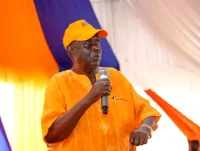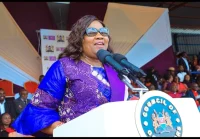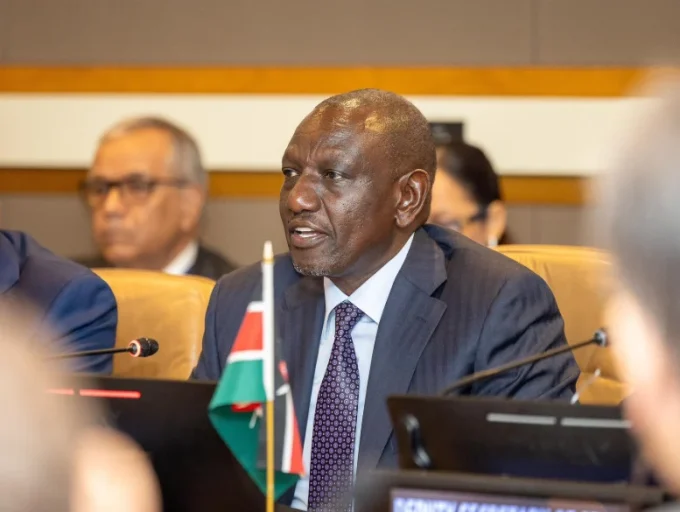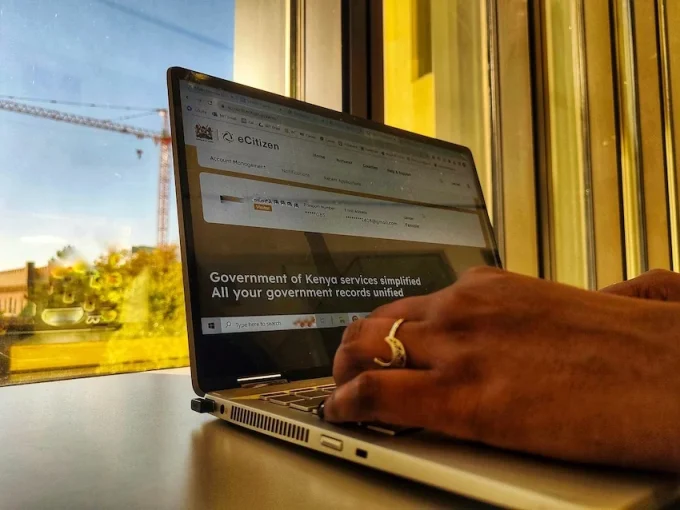Kenyan Technology and Public Policy Expert, Mr Philip Thigo, has been appointed by the United Nations Secretary-General, Mr Antonio Guterres, to join a newly established high-level advisory board on Artificial Intelligence (AI).
His appointment signals the UN’s commitment to harness profound knowledge across AI and related fields from a variety of sectors, ensuring inclusivity in terms of gender, age, geography, and expertise.
Mr Thigo’s appointment to this advisory board reaffirms Kenya’s leadership in the realms of technology and digital governance, echoing its reputation as the “Silicon Savanna.” With Kenya’s representation and the combined expertise of the Body, the global AI governance landscape looks set for a transformation, ensuring that the digital future is inclusive, equitable, and serves humanity at large.
The establishment of the advisory board is a timely initiative, as proposed in the Secretary-General’s 2020 Roadmap for Digital Cooperation, and reiterated in June 2023, is a response to the rapid development of AI. This body, comprising 38 members (20 women and 18 men) and a permanent member of the Secretariat (UN SG’s Envoy on Technology, Amandeep Gill), is gender-balanced, geographically diverse, and inclusive of all age groups, representing 33 countries from all continents.
Mr Thigo currently serves as the Executive Director for Africa at the Thunderbird School for Global Management – Arizona State University – and is an advisor and technical lead on Open Government for the Government of Kenya. He was recognized as the “World’s 100 Most Influential People in Digital Government” in 2018 and as one of Africa’s “Top #100 Most Influential African Leaders in Technology and Telecommunications” in 2023.
Mr Thigo was recently appointed by the Cabinet Secretary for ICT and Digital Economy, Mr Eluid Owalo, to help reform the ICT, broadcast, and telecommunication sector in line with technological advancements.
>> High Rate of Cyber Attacks Rattles Safaricom Into Counter Action
This Advisory Body is not just a response to the rapid growth of AI but also sets the stage for the Summit of the Future, where a Global Digital Compact is expected to be adopted. It aims to consolidate global scientific consensus on AI risks, challenges, and the immense potential AI holds in achieving the Sustainable Development Goals (SDGs). Their recommendations, due by the Summer of 2024, will serve as a compass for governments and businesses to navigate the swift currents of AI developments.
The body intends to actively engage with a plethora of stakeholders ranging from governments to faith-based organizations. Consultations across various regions and with specific groups are in the pipeline. This approach ensures that AI governance synergizes across national and regional efforts, with the overarching goal of AI benefiting all of humanity.
The UN’s role in the international governance of AI is pivotal. Given its historical precedence in technology governance, its universal inter-governmental legitimacy, and the reference frameworks it provides – such as the UN Charter, UN human rights conventions, and the UN SDGs – it offers a unique and necessary perspective in the governance of AI.
>> Kenyan Lawyer Holding 4 Plum Jobs Quits All of Them At Once
Mr Thigo, in thanking the UN Secretary-General for this honour, affirmed his commitment to ensuring the development of a safe, secure, and trusted AI future is inclusive of the realities, aspirations, and perspectives of Kenya and that of the African Continent, in line with the fundamental values of human rights. AI, while posing risks to human existence, also has the potential to help solve some of the greatest developmental challenges, such as food security, climate change, high disease burden, and poverty.
The Advisory Body will debate potential governance models for AI, understanding that previous models may not be directly applicable. Drawing insights, perhaps from models like the IPCC for climate change, the Body aims to provide reliable expert analysis for international AI governance.
>> Are Women Time Wasters Or Men Are Just Weak?













Leave a comment